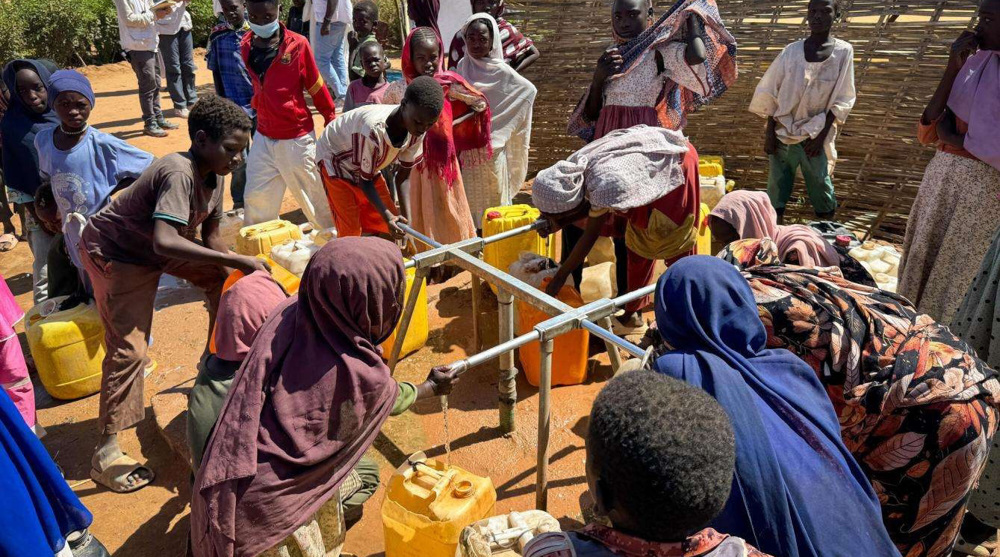Seven killed in Yemeni retaliatory attack on Saudi soil
At least seven people have been killed in a Yemeni retaliatory attack on Saudi Arabia’s southern Najran region.
According to Saudi media, a rocket launched by Yemeni forces, backed by fighters from Yemen's Ansarullah movement, hit an industrial zone in Najran on Tuesday, killing four Saudis and three foreigners. The nationality of the foreigners was not immediately available.
Such attacks are part of a drive by Houthis and allies to avenge more than 15 months of military aggression by Saudi Arabia.
Meanwhile, Saudi jets pounded residential buildings in Bani al-Harith district north of the Yemeni capital Sana’a, leaving two women and two children dead. Seventeen people were also injured in the Saudi airstrikes against Bani al-Harith.

Sixteen other Yemeni civilians were killed in attacks on a village near the capital, where nine others were also wounded.
Earlier in the day, Saudi fighter jets struck a vehicle as it was traveling along a road in the Abs district of the northern Yemeni province of Hajjah, leaving five people dead.

The incident comes just one day after a Saudi airstrike hit a hospital run by Doctors Without Borders (MSF) in the same province, killing at least 25 people.
Yemen has been under Saudi military strikes since late March 2015. The war was launched in a bid to undermine the Ansarullah movement and to reinstate Abd Rabbuh Mansur Hadi, who has stepped down as Yemen’s president but is now seeking to grab power by force.
Billions in damage so far: Report
According to a confidential report released by Reuters on Tuesday, Saudi Arabia’s attacks have cost Yemen over $14 billion in damage to infrastructure and economic losses.
"The conflict has so far resulted in damage costs (still partial and incomplete) of almost $7 billion and economic losses (in nominal terms) of over $7.3 billion in relation to production and service delivery," said a May 6 report by the World Bank, the United Nations, Islamic Development Bank, and the European Union.
The survey notes that since the conflict is still ongoing, the results are based on preliminary findings. It also says that the public health system in the southwestern province of Ta'izz is close to a total collapse as over half of its hospitals are inaccessible or severely damaged.
"There has been a surge in civilian morbidity and mortality as an indirect consequence of the conflict," it added.
The complete version of the report has not been publicly released yet.
US fighter jets fly over Gulf of Venezuela in new escalation
New leader of Israeli-backed militia in Gaza tied to Daesh: Report
VIDEO | Displaced Palestinians seek fragile alternatives to support their tents
VIDEO | Press TV's news headlines
VIDEO | Iran marks Intl. Anti-Corruption Day with summit on transparent governance
VIDEO | Ethiopia holds ceremony to mark Intl. Day of Solidarity with Palestinians
VIDEO | Pakistan voices outrage against Israel on Genocide Prevention Day
Iran urges decisive global action to end Israeli genocide, honor victims













 This makes it easy to access the Press TV website
This makes it easy to access the Press TV website